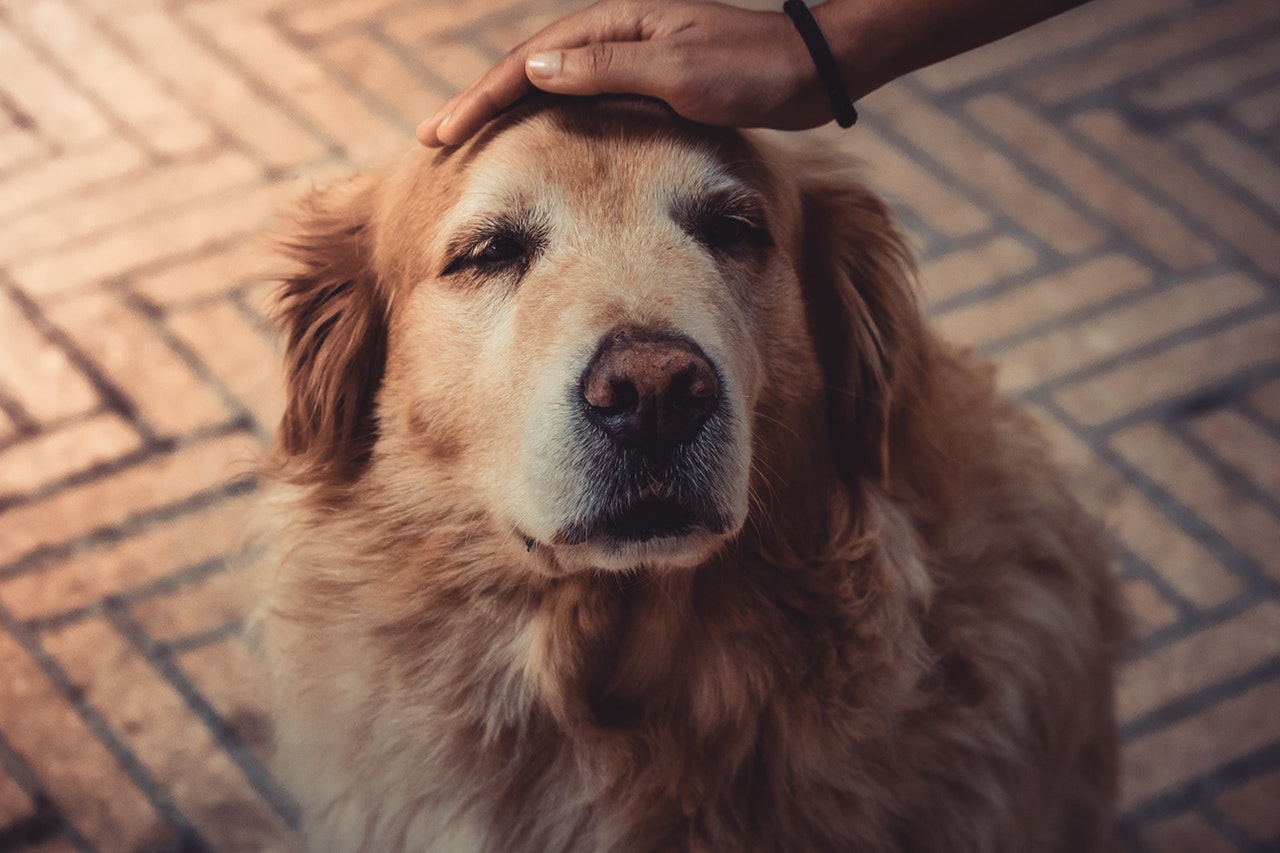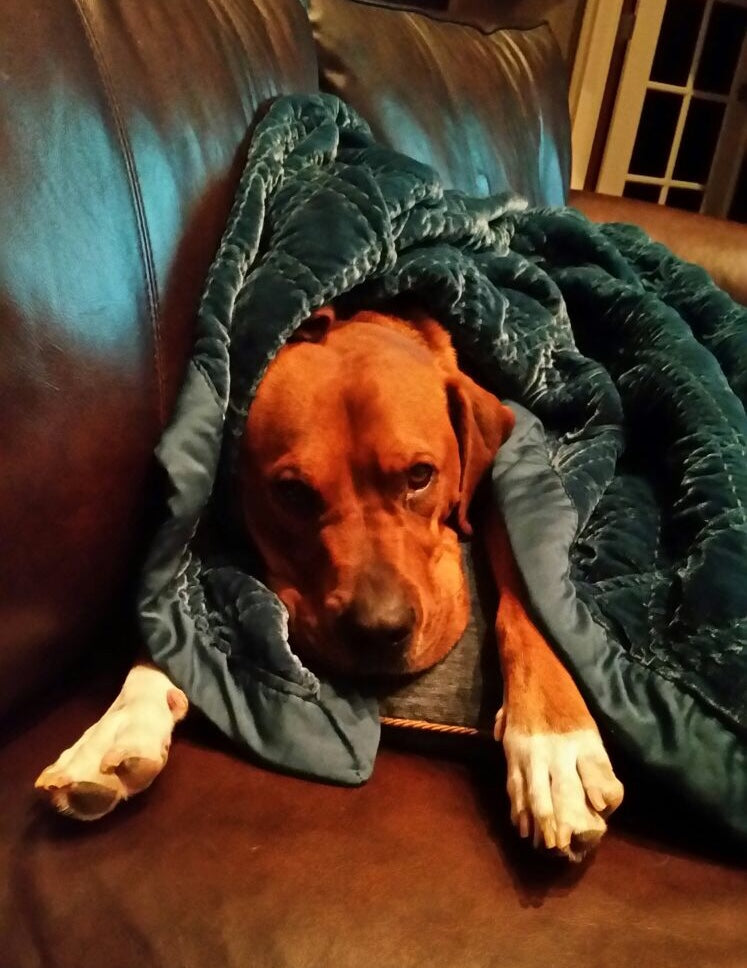Previously on the blog, we've explained how coconut oil supports your pet's digestive system. We've also looked at how it helps manage digestive disorders, including Crohn's disease and pancreatitis.
In today's post, we'll take a look at another gastrointestinal disorder we're often asked about: protein-losing enteropathy. Keep reading to find out what it is, how it can affect your pet, and why the medium-chain triglycerides (MCTs) in coconut oil are beneficial for animals with the disorder.
Types of Protein-Losing Disorders
First, it's worth mentioning that there are two types of protein-losing disorders: Protein-losing nephropathy (PLN) and protein-losing enteropathy (PLE). PLN affects the nerve endings in the kidneys, and leads to large amounts of protein being eliminated in the urine. By comparison, PLE affects the intestines, leading to excessive loss of protein in the feces.
Research has shown that PLN and PLE are closely related and may occur together. For more information about PLN, we recommend referring to this article from Pets4Homes. In this post we'll focus on PLE, since it's the most common type of protein-losing disorder in pets.
Causes of Protein-Losing Enteropathy
As part of the digestive process, food enters the intestines from the stomach to be broken down. Nutrients from the food then enter the bloodstream and are carried throughout the body where they are converted into energy.
During this process, a small amount of protein leaks from the blood vessels back into the intestines. In healthy animals, this poses no threat to health, as the protein is digested and reabsorbed by the body. However, in animals with PLE, excessive amounts of protein leak back into the intestines. When this happens, the body is unable to reabsorb the excess protein.
The exact cause of PLE is unknown, but it is thought to occur as a result of certain conditions. These include inherited defects of the digestive tract, intestinal cancer, and bacterial or fungal infections. Other potential underlying causes of PLE include food allergies, intestinal parasites, ulcers, and inflammatory bowel disease (IBD).

Lymphangiectasia
The lymphatic system is a network of tissues, vessels, and organs that plays an important role in balancing fluid levels and protecting against infection. It does this by transporting a fluid called lymph throughout the body. Lymphangiectasia is a disease characterized by dilated lymph vessels. The condition impairs the function of the lymphatic system and can lead to PLE.
In the intestinal tract, lymphangiectasia is usually the result of inflammation that puts pressure on the lymph vessels and causes them to dilate. The lymph vessels in the intestines are known as lacteals. Their role is to absorb dietary fats in the intestine. When inflammation occurs, the lacteals can enlarge and rupture. If inflammation is widespread, this can lead to excessive protein loss and nutritional imbalances.
Lymphangiectasia is usually a secondary symptom of underlying conditions such as cancer, right-sided congenital heart failure, intestinal cancer, or constrictive pericarditis (inflammation of the membrane that surrounds the heart). Less commonly, the disease can be caused by inherited genetic factors.
In an article for Mercola Healthy Pets, Dr. Karen Becker, DVM., NMD., notes that lymphangiectasia may also be closely linked to inflammatory bowel disease. She explains:
"Inflammatory bowel disease, also called IBD, is often diagnosed along with lymphangiectasia. But it's not clear whether one of these conditions precedes the other, or whether they are both a result of the same disease process. My strong belief is that chronic gut inflammation is the root cause of IBD, which precedes lymphangiectasia."
Symptoms of Protein-Losing Enteropathy
Common symptoms of PLE include weight loss, diarrhea, vomiting, lethargy, and loss of appetite. Animals with the disorder may also develop ascites, a buildup of fluid in the abdominal cavity that can lead to swelling and breathing difficulties. You may also notice swelling caused by edema, an abnormal accumulation of fluid in body tissues.
Case Study: Camille
CocoTherapy co-founder Charisa Antigua's yorkie, Camille was diagnosed with PLE over two years ago. Months leading up to her diagnosis, Charisa found herself constantly addressing numerous issues, that in hindsight, should have been a red flag that something more serious was brewing.
Camille was suffering from chronic, intermittent diarrhea, which her vet eventually diagnosed as inflammatory bowel disease (IBD). In addition, her protein levels – specifically albumin – were dropping. Eventually, she developed ascites, which is fluid accumulation in the abdominal cavity.
By the time she was diagnosed, Camille had to be hospitalized to undergo abdominocentesis to address the ascites. She also needed a blood plasma transfusion to help bring her albumin levels back up to normal. Had Charisa known that Camille's chronic gut inflammation would eventually result in PLE, she would have taken steps to be more proactive in addressing the disease.
To manage PLE, many vets prescribe immunosuppressive medications or steroids such as prednisone or azathioprine for long-term use. In addition, hypoallergenic or select protein, low-fat diets are usually prescribed. Camille’s vet prescribed a prescription diet (Hill's I/d) and an immunosuppressive drug.
While immunosuppressive drugs may help in initially managing serious cases of PLE, Charisa did not want to used the drugs long-term. She also wanted to feed a more natural, bio-available diet, and use supportive natural supplements and remedies to manage the PLE.
Camille's Diet
Food
Charisa prepared a varied homemade diet using low-fat proteins such as cooked chicken, cod or tilapia, and eggs. She also gave sweet potatoes, and assorted vegetables (including carrots, spinach, squash, and beets). In addition, Camille was given a hydrolyzed protein food supplement (Peptamen). This provided a highly digestible and absorbable protein source to help maintain Camille's albumin levels.
Charisa added CocoTherapy Coconut Chips to Camille's diet for fiber. She also gave her CocoTherapy virgin coconut oil, a highly digestible source of fat and lipid energy.
Supplements
Charisa gave supplements to support Camille's gut health, such as:
- Probiotics/prebiotics and digestive enzymes
- L-Glutamine – for immune support and gut health
- N-Acetyl Glucosamine (NAG) – for intestinal support
- N-Dimethyglycine (DMG) – an amino acid (a building block for protein) for immune support, antioxidant, and anti-inflammatory support
- Taurine – an amino acid for muscular, brain, and cardiovascular support
When Camille had a GI flare-up or diarrhea, Charisa managed it with Gut Soothe (by Adored Beast), slippery elm, and a homeopathic remedy (such as Arsenicum album).
By supporting Camille’s GI and providing a fresh, all-natural, highly digestible diet, Charisa was able to manage Camille’s PLE with excellent results.
Important: Please note that every animal is different and may have unique issues associated with PLE. It is vital to work with a holistic or integrative veterinarian when treating PLE or any other disease. Always consult with your veterinarian before introducing your pet to new supplements, or stopping a course of prescribed medication.
Coconut Oil and Protein-Losing Enteropathy
Pets with PLE are usually prescribed diets with minimal fat and a sufficient amount of high-quality protein to help treat the disorder. But removal of fat from the diet can result in weight loss and malnourishment.
Because MCTs are efficiently converted into fuel for immediate use by the body, coconut oil can be added to the diet to replace lost calories. The MCTs in the oil can also help your pet's body absorb essential vitamins and nutrients from food and supplements. In fact, recent research has demonstrated the benefits of coconut oil for pets with PLE and lymphangiectasia.
When using coconut oil as a dietary supplement, it's vital to choose a high-quality therapeutic-grade oil such as CocoTherapy coconut oil. Our oil is sourced from our USDA-certified organic family farm in the Philippines, and carefully manufactured in our own facility. In addition, be sure to always feed your pet coconut oil in moderation as part of a balanced, species-appropriate diet.
Have any questions you'd like to ask us? Let us know in the comments and we'll be happy to answer them.



